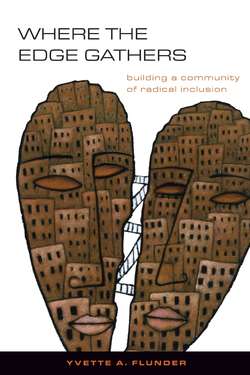Читать книгу Where the Edge Gathers: - Yvette A. Flunder - Страница 14
На сайте Литреса книга снята с продажи.
2 SUSTAINING COMMUNITY
ОглавлениеWHILE CREATING COMMUNITY among marginalized people centers on a common need for acceptance and affirmation, sustaining community is quite another matter. In order for peace and order to exist in the village there must be a way to be, together. It is often difficult for people who have not had full rights to community life to understand that freedom without responsibility and accountability is as detrimental as slavery. Freedom cannot be an end unto itself. Freedom from something must flow into freedom to be something else or it is not truly freedom. The object of getting free is being free: the object of being free is living free.
Martin Luther states that the true freedom of the Christian comes from faith in Christ and love for our neighbor. In describing the “free” Christian community he says, “Christians live not in themselves, but in Christ and in their neighbors. Otherwise they are not Christians. They live in Christ through faith and in their neighbor through love.”1 If we are free from evil, hatred, and dysfunction, we are constrained to help establish the beloved community, where all can live free.
In order for a community to thrive, there must be an understanding of faithful community-building behavior and a disseminating of duties and chores. Faithful community-building behavior suggests that each member of the community concerns him-/herself with the effect of her/his behavior on the good of the community. The dissemination of duties and chores ensures that all members share in and contribute to the welfare of the community.
There must also be respect for understood boundaries. In the village there are no doors on the huts, but one must know when it is intrusive to enter, and even though clothing is minimal, one must know the rules of touching and staring. Although all are welcome at the table, a certain behavior is expected.
Additionally, sustaining Christian community requires an intentional effort to design a framework that includes everyone in the life of the church. We must constantly revisit the commitment to be inclusive and compassionate along with being responsible and accountable. Sustaining community in an atmosphere of openness and mutual vulnerability requires a conscientious look at village ethics for a people whose common denominator is oppression, but whose lives and lifestyles may differ greatly. The idea about village ethics of a straight person who has been incarcerated, or a mother who has a history of drug use, may be very different than those of an SGL youth or person living with AIDS. Finding common ethical ground is as important to the survival of the community as the theology of the welcoming table is to the creation of community.
I will lift up some ethical, pastoral, and ecclesiological considerations for sustaining community on the margin and some additional recommendations for community life.
